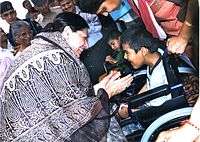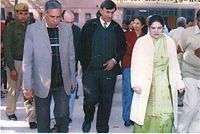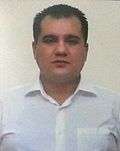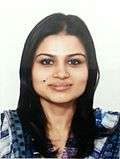Spastic Society of Gurgaon
 | |
| Abbreviation | SSOG |
|---|---|
| Formation | 2007 |
| Founder | Rajesh Bhola |
| Type | NGO |
| Legal status | Organization working in disability |
| Purpose | Care of persons with cerebral palsy, intellectual disability, autism, multiple disabilities |
| Headquarters | Sector 4, Gurgaon, Haryana, India |
| Location | |
| Services | Occupational therapy, Counseling, Vocational training, Psychotherapy, Imparting counseling to guardians, Multiple single window services, Assistance in issuance of disability certificates, NIRAMAYA cashless insurance cards, Medical check ups, Distribution of medicines and medical aids, etc. |
Membership | NGO Member, Local Level Committee (LLC) Gurgaon appointed by Ministry of Social Justice and Empowerment, Government of India. |
| Slogan | Efforts for the care of spastics |
| Website | http://ssog.in |
| Disability |
|---|
|
Theory and models |
|
Therapy |
|
Societal implications |
|
Spastic Society of Gurgaon covers within its scope the programs on occupational therapy, counseling, vocational training and psychotherapy[1] of the children with autism, cerebral palsy, intellectual disability and multiple disabilities in Haryana, India.[2] It is India's first non-profit disability sector organization which was awarded ISO certification by United Kingdom Accreditation Service : United Registrar of Systems for quality of services rendered by it.[3] It also works in the field of imparting counseling and psychotherapy to the parents and guardians of the disabled children. Mass camps are conducted for welfare of children with disabilities.[4][5] Multiple single window services like assistance in issuance of disability certificates, NIRAMAYA cashless insurance cards, medical check ups, distribution of medicines and medical aids are rendered to the disabled in such camps.[6][7][8] Being sponsored by Haryana Government it undertakes disability audits of organizations for assessing accessibility compliance by them.[9]
It was founded by Rajesh Bhola[10][11] along with some eminent doctors and social workers[12] drawn from different super specialty fields. Rajesh Bhola is working for the cause of persons with disabilities [13]since 1985 and was the main person behind formation of the Society and is serving as its President.[11] He completed his Post Graduation in English Literature with Linguistics from Punjab University Chandigarh. Later he completed his PhD in English Literature. He is an Indian spiritual writer known for his weekly spiritual column in Friday Gurgaon.[14] Also contributes articles to Hindustan Times Inner Voice and blogs to The Speaking Tree of The Times of India.[15]
History
Spastic Society of Gurgaon aims to address certain questions related to welfare of spastic children of Gurgaon, NCR and Haryana. People from various walks of life have joined hands to make efforts to arrange for long term care of such children; and also to help their parents live life fully, purposefully and contentedly by bringing them closer to each other, by creating coordination between various agencies, social workers, professionals and infra-structure providers. Efforts are also being initiated to make environment of Gurgaon, the millennium city of India, more spastic friendly.


Activities

Services being rendered by SSOG through two separate delivery channels are the Center for Special Children and the Center for Physiotherapy for Senior Citizens. All the services rendered at the Center for Special Children are free of cost. It was established to expedite provision of disability certificates and as a single-window service to assist disabled persons in obtaining benefits from the state and central governments.[2][8] SSOG has been appointed as NGO Member of Local Level Committee (LLC) Gurgaon by Ministry of Social Justice and Empowerment, Government of India.[16] As part of rehabilitation, the specially challenged persons are kept in the mainstream and looked after for their emotional needs as well. Music and entertainment is part of rehab. Many noted persons from music, art, craft and drama fields often meet such children during interactive sessions with guardians of such children. Ila Gokarn is one of the young Bharatnatyam exponents who performed at Spastic Society of Gurgaon.[17]
Managing disability

Each person with cerebral palsy has unique strengths and areas of difficulty. Most children with cerebral palsy need ongoing help with daily care to long term care. While mastering specific skills is an important focus of treatment on day-to-day basis, the ultimate goal is to help children grow into adulthood with as much independence as possible. Depending on their physical and intellectual abilities, adults need help finding attendants to care for them, a place to live, a job, and a way to get to their place of employment. For parents to accept a child’s disabilities and come to grips with the extent of their care giving responsibilities will take time and support from different professionals. SSOG is coordinating with these professionals and encourages partnerships between parents and these professionals.[18] Although medical specialists may be the experts, it is parents who know their children best. SSOG makes the efforts to integrate these efforts aimed at making the life of the spastic child livable and comfortable to the best possible extent.[19] Government of India has been very helpful in giving shape to things for welfare of poor cerebral palsy children by jointly organizing disability camps for single window delivery of many facilities which included medical check ups, issue of disability camps, Niramaya health cards and exploring employment opportunities for such persons in view of their subjective types and severity of the disabilities. Such camps are organized with support of local deputy commissioner and chief medical officer of the concerned district.
Spreading awareness about risk factors

Despite advancements made in the field of medicine and allied fields the exact cause of cerebral palsy remains unclear. About 50% of all children who develop cerebral palsy were born prematurely. Premature infants are at higher risk because their organs are not yet fully developed, increasing the risk of asphyxia and other injury to the brain. Some other causes of cerebral palsy are asphyxia, hypoxia of the brain, birth trauma, premature birth, multiple birth and certain infections in the mother during and before birth. Other major cause of cerebral palsy after birth in developing nations like India is medical neglect. Many signboards and other visual materials are displayed at prominent places for spreading awareness amongst people about precautions to be taken at prenatal, at time of delivery and at post natal levels to avoid incidence of deformities.
Symptom management
Cerebral Palsy was first identified by English surgeon William Little in 1860 who raised the possibility of asphyxia during birth as a chief cause of the disorder. In 1897 Sigmund Freud, the famous psychoanalyst, suggested that a difficult birth was not the cause but only a symptom of other effects on fetal development. All types of cerebral palsy are characterized by abnormal muscle tone, posture reflexes, motor development and coordination. The main symptoms are problem with balance, involuntary movements and scissor making. On the whole, cerebral palsy symptoms are very diverse and different in each case of cerebral palsy . The effects of cerebral palsy fall on a continuum of motor dysfunction which makes coordinated movement almost impossible. In case of delayed milestones the parents need to approach for medical guidance and complete medical diagnosis and analysis. Noninvasive rehabilitation procedures are the only methods for enabling persons with cerebral palsy to lead their lives to the best possible ways. SSOG is spreading this message through their medical specialists in the field to major hospitals for early diagnosis.[3]
Inclusive care


A very sterling role has been played by Shekhar Vidyarathi, Deputy Commissioner, Gurgaon and his administration aide Ekta Chopra, City Magistrate, Gurgaon in genuinely understanding the needs of the disabled and empathizing with the physical constraints they confront in course of their daily lives. These two positive minded human beings proved instrumental in amelioration of the lot of the disabled. Shekhar Vidyarathi was clear in his objectives regarding managing disability when he said that “The overall goal for ongoing care of individuals with cerebral palsy is to help them reach their physical, mental and emotional potential. Generally this includes living as much as possible in the mainstream of their society and culture. People with cerebral palsy tend to be happiest when they go to school with, live with and work with their peers. They also love to be listened to and caressed.”
Ekta Chopra, City Magistrate, Gurgaon feels the greatest pain when a child with disability is denied admission to a school in Gurgaon. The children with disability have the right to go to mainstream schools, where teachers can be imparted training regarding the different teaching techniques and adaptations which can be provided. Child centric teaching methods will help these children and promote inclusion.
Shekhar Vidyarathi strongly advocates that more and more people should volunteer for helping these people in their own interest because people closely associated with such spastic or severely disabled children are more spiritually inclined as their level of consciousness gets heightened and prayer and meditation comes naturally to them. They get closer to the inner core of their being. It is also observed that the persons connected with such children develop more emotional control and better understanding of human problems, shun trivia and focus on more useful issues facing society. It unfolds further dimensions of their heart and mind. Not only that, people associated with such children connect themselves better with others, communicate better and feel their intuitive powers continually being recharged and expanded. They feel they have found a sort of mission in life and it keeps them in better frame of mind – positive, healthy and holistic. Probably this is the key to angelic aura and saintly contentment that the visages of great social and other selfless workers so distinctly reflect.
Welfare for the disabled
A Local Level Committee (LLC) has been set up by the Ministry of Social Justice and Empowerment in every district in India, to monitor and govern issues related to disability. An LLC constituting the Deputy Commissioner of the district and an NGO working in the field of disability looks after matters related to welfare, rehabilitation, medical care, special education and legal guardianship of persons with disabilities. In Gurgaon, the LLC constitutes the Deputy Commissioner and the Spastic Society of Gurgaon. Some important decisions have recently been taken for the welfare of persons with disabilities - particularly those with mental disabilities, in Gurgaon - in an LLC meeting attended by Deputy Commissioner Shekhar Vidyarathi, Dr. Rajesh Bhola, President, Spastic Society of Gurgaon and City Magistrate Ms. Ekta Chopra.
1. A basic criterion for the issuance of Guardianship Certificates has been relaxed. Now, even those parents (of disabled children) who have migrated to Gurgaon from other cities, and who have stayed in Gurgaon for less than 10 years, will be considered for issuance of Guardianship Certificates, provided the applicants produce the address and identity proofs to the satisfaction of the competent authorities.
2. A disability camp will shortly be organised at the premises of the Spastic Society of Gurgaon, Old Age Home, Sector 4, for the delivery of single window services to the disabled. Rajesh Bhola will co-ordinate for the same with the Chief Medical Officer, Primary Health Officer and the Disability Liaison Officer at the Civil Hospital.
3. All the major hospitals of Gurgaon have been advised to display an essential signboard (as per a specified content and design), which would help spread awareness on ‘How to prevent Disability’. The signboard would be positioned near the gynecological departments and neonatal nurseries. The lack of knowledge on the part of women, at the stages of pregnancy, delivery and child rearing, contributes significantly to the problem of disability. Such signboards have already been displayed at the Civil Hospital, Bus Stand and Spastic Society of Gurgaon.
4. A camp for measles vaccination of the disabled, and for needy children, will be organised at the Spastic Society of Gurgaon premises before this month end.[20]
See also
References
- ↑ "Mandbuddhi Bachon ka Jeevan Sudhar Rahe Bhola", Dainik Jagran, 29 June 2014
- 1 2 "A Blessed Society", Friday Gurgaon, Gurgaon, 27 January 2012
- 1 2 United Kingdom Accreditation Service : United Registrar of Systems Certification
- ↑ "Chikitsa Shivir Aayojit", Dainik Jagran, India, 3 May 2014
- ↑ "कोई भी व्यक्ति परिपूर्ण नहीं : आशा हुड्डा", दैनिक ट्रिब्यून, India, 1 May 2010
- ↑ "Camp for differently abled on Jan 14", The Tribune Chandigarh, India, 11 January 2009
- ↑ "Cashless insurance scheme for the challenged", The Tribune Chandigarh, India, 15 January 2009
- 1 2 "Disabled to get certificates on Jan 14", The Tribune, Delhi, 12 January 2009
- ↑ "Is Gurgaon disabled-friendly?", The Times of India by Dr. Rajesh Bhola (President Spastic Society of Gurgaon), 22 February 2014
- ↑ "Manasik rup se aksham bachche bane dusron ka sanbal", Danik Jagran, Gurgaon, 20 October 2013
- 1 2 Spastic Society of Gurgaon PRESIDENT
- ↑ Spastic Society of Gurgaon, Advisors on the Panel
- ↑ "Viklango ke punervas ki zimmedari uthaye sarkar", Dainik Jagran, Gurgaon, 16 June 2014
- ↑ Weekly Spiritual Column in Friday Gurgaon
- ↑ The Speaking Tree Blog of The Times of India
- ↑ State Chairperson, LLC-NGO - National Trust (page 25)
- ↑ "Ek chat ke niche hogi viklango ke liye suvidha", Dainik Jagran, Gurgaon, 23 March 2015
- ↑ Need of Special Care
- ↑ Management
- ↑ "Welfare for the Disabled", Friday Gurgaon, Gurgaon, 12 September 2014
External links
- Spastic Society of Gurgaon, Website